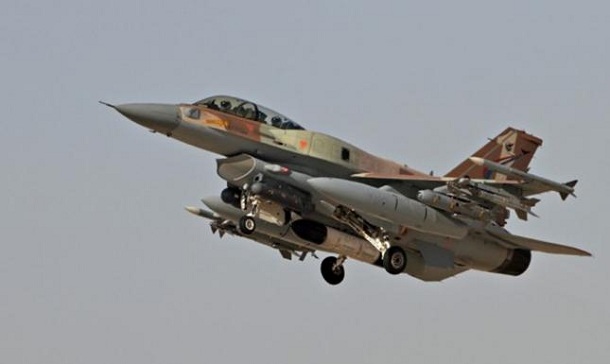At first glance, the two series of Israeli air strikes inside Syria on Friday and Sunday may suggest that Israel is no longer reluctant to take sides in Syria’s two-year-old civil war. But the likelihood that Jerusalem would seek to precipitate the by-now almost inevitable toppling of the Bashar al-Assad regime by cooperating with the rebels is low. Based on what is known, the target of the air strikes, which reportedly killed as many as 42 Syrian soldiers, were Iranian arms bound for Lebanese Hezbollah.
The reason is simple. For all its other faults the Assad regime has ensured a relatively stable border with Israel, and whatever comes after its downfall —likely, a mixture of Islamist rebels, some of whom have pledged allegiance to al-Qaeda — would likely be more threatening to the Jewish state.
Reports indicate that the heavy air strikes targeted stores of short-range Fateh-110 missiles that were awaiting transfer to Hezbollah. Syria, which has developed a domestic version of the Iranian-made missile under the designation M-600, was accused by Israel of transferring “hundreds” of missiles to Hezbollah in 2010. Israel has said that the transfer of such technology to the Lebanese organization was a “red line.” Some analysts also posited that the shipment could have included Scud D missiles, which have a range of 600km.
Of particular concern to Israel is the fact that the solid-fuel Fateh-110 can deliver a 500kg warhead at a distance of 250-300km with a “circular error probable” (CEP), of 330 feet, which would provide Hezbollah with the ability to strikes targets deep inside Israel with greater precision.
Four months earlier, Israeli air strikes inside Syria targeted a convoy of Russian-made SA-17 anti-aircraft missiles, also reportedly bound for Hezbollah.
A close aide of Israeli Prime Minister Benjamin Netanyahu said during a radio interview that Israel aims to avoid “an increase in tension with Syria by making clear that if there is activity, it is only against Hezbollah, not against the Syrian regime,” and Yedioth Ahronoth, Israel’s top-selling newspaper, reported that the Netanyahu government had used diplomatic channels to assure Assad that it had no intention of taking sides in the civil war. But Jerusalem is aware that it can probably act with impunity against the Assad regime, which is reluctant to open a new front given its domestic struggles.
Netanyahu wouldn’t have headed for China on Sunday to discuss trade issues if his government expected that its actions over the weekend risked leading to war with its neighbor.
Hezbollah and its patron in Iran appear to be trying to exploit the chaotic situation in Syria to transfer arms to southern Lebanon. Whether Assad has played any role in such attempted transfers remains to be seen. Nonetheless, the weapons might be the Assad regime’s repayment to the Shi’a organization for its support in the Syrian civil war.
With the possible topping of the Assad regime and the likelihood of growing foreign involvement following claims that the regime has used chemical weapons against its opponents, Tehran and Hezbollah could also fear their overland shipping route through Syria might be closing fast, and could therefore be attempting to send as much materiel to south Lebanon as they can before a post-Assad Syria emerges.
Hezbollah’s ability to remain a credible threat to Israeli security, and to act as a deterrent against military intervention targeting the Iranian regime, depends to a large extent on Syria remaining open as an arms conduit. Hence the group’s support for the Assad regime in the Syrian civil war, and the sense of urgency it might now feel in procuring whatever it can before the opportunity closes with the fall of the Assad regime.
By J. Michael Cole
[via]






Post A Comment:
0 comments:
Post a Comment